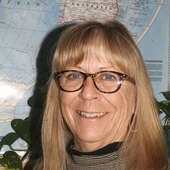- Research tips and McCook Brick Company- solid as a brick (12/16/24)
- Big Give appreciation and some railroad characters (11/15/24)
- George Randel becomes a landowner, gets married, and takes in a Buffalo Bill show (9/20/24)
- The memoirs of George F. Randel, early settler of Red Willow County (9/12/24)
- Vietnam War Memorial honors Nebraskans who served (6/13/24)
- McCook business promotions - just prior to 1893 stock market crash (5/30/24)
- Shall we dance? Meet you at the Gayway (12/8/23)
Seeing original documents is vital when researching your family tree
Friday, November 13, 2015
Susan Doak
Southwest Nebraska Genealogy Society
Before the written word, it is surmised that people kept records through stories and songs passed down from generation to generation. Considering that thought, you have to remember that literacy, the ability to read and write by the majority of people in our country, is a fairly "new" concept!
Many of our immigrant populations came as servants, laborers, slaves (in the sense that they were purchased in whole or their debts were purchased, which essentially gave their "owners" complete control over their lives) or refugees.
I know you are all thinking that I am talking about long ago, but the reality is, as Linda Hein pointed out in her presentation on the Orphan Trains, children were not automatically pampered little people as short a time ago as the early 1900s. Not every child was guaranteed an education and in fact, early schools in the United States were private sectorial schools and most attending were those whose parents could afford the tuition.
Massachusetts was the first state to introduce "compulsory education" and that happened in 1852. Strangely enough, it took 66 years before the final state, Mississippi, joined the compulsory education movement in 1918. Even if that seems a long time ago to most of us, both my mother and my father were born before then.
These facts are why it is often difficult to pin down parts of your genealogical tree! If you are wondering why one of your branches spelled their name differently in Europe than in the United States, it is quite often because they really didn't know how to spell their name period! When they landed in the Americas, the spelling was left up to whoever was trying to discern their name for the records, and they were often hampered by the fact that they were interviewing a person who spoke no English, plus, could not read or write in any language.
In comes the Internet! Unlike my aunt who did all of her research by writing letters and sending off requests for copies of original records, I can just power up my PC and find all my information! Or can I? Here's the catch. Just like those people who wrote down census information or interviewed new arrivals to the United States, people who extract information to be placed on internet genealogical sites can make incorrect interpretations also! When I find those "miss-copied" items, I try to correct them on line but as we all know, incorrect data on the World Wide Web is hard to change!
This is not to place blame, but rather to recognize why original documents are so important to proving up your genealogical tree! You cannot reliably enter something as truth until you have looked at the actual document it came from whenever possible.
I will give you a perfect example. My great-grandfather was named after President John Knox Polk: James Knox Polk Davison. I was hitting blanks on tracing him as a youngster until I realized that the person extracting his information from a census had entered him as having the last name Polk instead of Davison. There he was with his siblings; he just didn't appear in a normal search for Davison!
At the very least, you should always look for an original document! They are often attached to the information, but when they are not, keep that information separate until you can confirm it with other validation!
SWNGS open library will be Saturday, Nov. 21, 110 West C Street, Suite M-3 from 1-3 p.m. A big thank-you to everyone who made our 40th anniversary celebration a great success!

